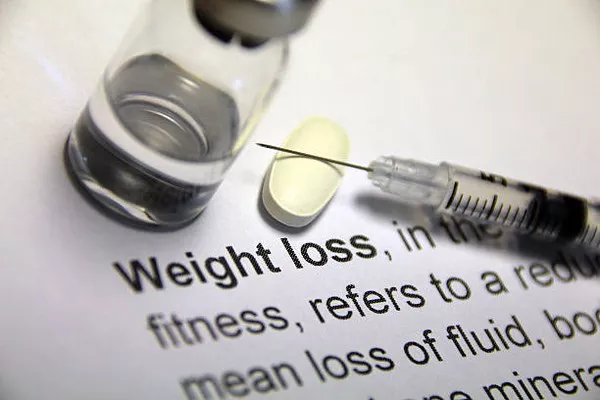The Health Secretary, Wes Streeting, has urged the public not to see weight-loss jabs as an excuse to abandon healthy habits such as proper diet and exercise, even as the NHS prepares to expand access to these treatments.
Streeting’s warning comes amidst growing concern over Britain’s obesity crisis, with two-thirds of adults classified as overweight or obese. Experts estimate that obesity-related issues cost the UK economy a staggering £27 billion annually, factoring in health care and benefits for those unable to work due to obesity-related health conditions.
While weight-loss injections like Wegovy and Mounjaro are seen as a powerful tool in combating the obesity epidemic, Streeting cautioned that they should not lead to complacency regarding personal responsibility. “We don’t want to create a culture where people think it’s acceptable not to care about their diet or fitness just because they can rely on the NHS for weight-loss jabs,” Streeting told The Telegraph. “It’s essential that everyone plays their part in reducing the burden on the NHS.”
The NHS is gearing up for a significant rollout of weight-loss injections, potentially offering the treatment to up to 1.6 million people. These injections will primarily be targeted at those with severe obesity and related health conditions, with the government emphasizing that only the most at-risk patients will initially benefit.
Currently, the NHS limits access to weight-loss jabs such as Wegovy—also sold as Ozempic for the treatment of Type 2 diabetes—to patients with severe obesity. However, private online clinics have been selling the drug to a wider audience, including individuals seeking to lose weight for cosmetic reasons, leading to concerns about misuse.
Wegovy, part of a new class of weight-loss drugs, has been praised for its ability to not only promote weight loss but also reduce the risk of serious health conditions. A recent landmark study found that the use of these injections can reduce the risk of cardiovascular death by 20%, a breakthrough hailed as the most significant advancement in cardiac medicine since statins were introduced in the 1990s.
Despite the promise of weight-loss jabs, Streeting stressed that reliance on these treatments alone is not a sustainable solution. “Obesity places a huge strain on the NHS, the economy, and people’s quality of life, so while weight-loss injections are an exciting development, it’s important that we maintain a balance between medical intervention and personal health responsibility,” he said.
Obesity is currently the second leading cause of preventable death in the UK, following smoking. The condition costs the NHS an estimated £11.4 billion per year, placing enormous pressure on resources and staff. NHS figures also reveal that Britons weigh around a stone more on average than they did three decades ago, with the typical middle-aged man now weighing 14 stone.
While the new weight-loss injections are licensed for adults with a body mass index (BMI) of at least 27 who have weight-related health issues, the NHS has so far restricted access to the most severely affected individuals. Draft guidance from the National Institute for Health and Care Excellence (NICE) recommends the use of Mounjaro for patients with a BMI of 35 or higher, provided they have associated health problems.
Concerns have been raised over the sale of weight-loss jabs by private pharmacies, with NHS bosses urging high-street retailers like Boots and Superdrug to ensure patients meet the necessary criteria. These calls follow reports that some online pharmacies have issued prescriptions for weight-loss jabs to individuals who are not clinically overweight.
Professor Sir Stephen Powis, NHS England’s national medical director, reinforced the message that these injections should not be viewed as a shortcut to achieve quick weight loss. “The jabs should not be a quick fix for those trying to get ‘beach body ready,’” he warned earlier this year.
There have been increasing reports of complications related to the misuse of weight-loss injections, particularly among young women who have manipulated online eligibility checks to acquire the drugs. Doctors are now seeing more cases of serious side effects, including pancreatitis, as a result of misuse, often requiring emergency treatment in hospital.
As the rollout of these weight-loss treatments begins, the government continues to emphasize that jabs should be used as part of a comprehensive plan to address obesity, alongside diet and exercise, rather than a standalone solution.
Related Topic:
Does Soonercare Pay For Weight Loss Surgery


